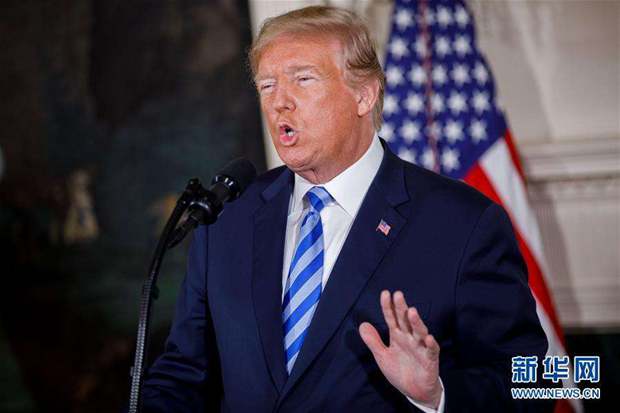The US-Iran conundrum
- By Sajjad Malik
 0 Comment(s)
0 Comment(s) Print
Print E-mail China.org.cn, August 4, 2018
E-mail China.org.cn, August 4, 2018

Recent statements and developments show that the relationship between the United States and Iran are in a state of free fall. Distrust between them runs deep and the two sides are even skeptical about any positive move that may come up amidst the current chaotic calibration.
Nobody can say with surety what Donald Trump had on his mind when he offered "unconditional talks" to his counterpart Hassan Rouhani. Analysts tore through the move as part of a script to rope in the Iranian leader for talks and increase the domestic fissures in Iran.
But it could well be an effort by the U.S. leader to wriggle out of the situation he created in May by unilaterally moving out of the agreement that his predecessor solemnly signed in the company of five other nations plus the European Union. The fact is that Trump, after exiting the JCPOA of 2015, has no backup plan.
The 12-point charter of demands issued by the Secretary of State after ditching the Iran deal has proved to be a non-starter. The division between the U.S. and European allies on the issue is also quite clear -- the U.K., France, Germany and the EU are standing with China and Russia on the issue of the nuclear deal.
But the response from Iran to the offer of a meeting by Trump was a typical knee-jerk reaction. A slew of Iranian leaders came forward to reject the offer, in a manner laced with traditional rhetoric. Though, Rouhani himself was more sober and measured.
The rejection of the offer of talks coincided with the worsening economic crisis. The currency has suffered and the dollar soared to 122,000 at one point during trading in the week. Later, it was pulled down to 115,000 but it was still too much as many Iranians witnessed their savings going down the drain.
The point is that relations between Iran and the U.S. have gone back to the old days as the new sanctions are coming into place, while more are to follow in November. There are reports of protests in the country and the government is under pressure to give some positive news to the people to ease the economic pressure.
Iran has survived the sanctions, covert wars and blatant threats and it says a lot about the resilience of the people and the leadership. Without going into the merits of the changes introduced in 1979, it can be said that Iran has so far valiantly guarded the revolution.
But things are changing fast and there are signs for the first time in decades that the powerful ruling class in Tehran has no answers to the questions posed by ordinary folks. The fundamental issue is the deterioration in the socio-economic situation which will be further compounded by the new U.S. sanctions.
Politics is called the art of the possible. An important element of both domestic and global politics is "timing." Great leaders opt for possible solutions and take timely measures and actions to avoid failures and resurrect their plans.
Iran has already stretched itself a bit too much by becoming part of regional as well as international great games. In the process, it has ignored the realities on the ground and has been forced to fight at multiple levels. In the good old days, the spirit of revolution was still young and it could help fix the problems.
But the priorities of the new high-tech generation are different. They cannot live in the memory of a revolution of which they were not even a part and which has not brought them the kind of prosperity they see in their neighborhood and the rest of the region.
Reportedly, the U.S. is interested in regime change in Iran but could well settle with the current leadership if there was a visible change in the attitude. The bare minimum should be to stop hurling threats at close allies like Israel and Saudi Arabia. Iran can also help in Syria, Iraq, Yemen and Lebanon.
The issue of nuclear weapons is more of a manifestation of the conflict. There is still space to settle it as it was already peacefully negotiated. Hence, there is no harm in direct talks between the top leaders of Iran and the U.S. if it can ease the tension.
In the worst-case scenario, the talks will fail. Still it is better to sit, discuss and even go away without any agreement, than not to talk at all and demonize each other.
Sajjad Malik is a columnist with China.org.cn. For more information please visit:
http://www.formacion-profesional-a-distancia.com/opinion/SajjadMalik.htm
Opinion articles reflect the views of their authors, not necessarily those of China.org.cn.





